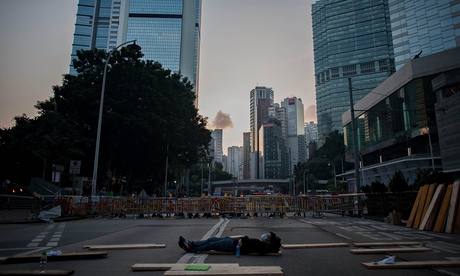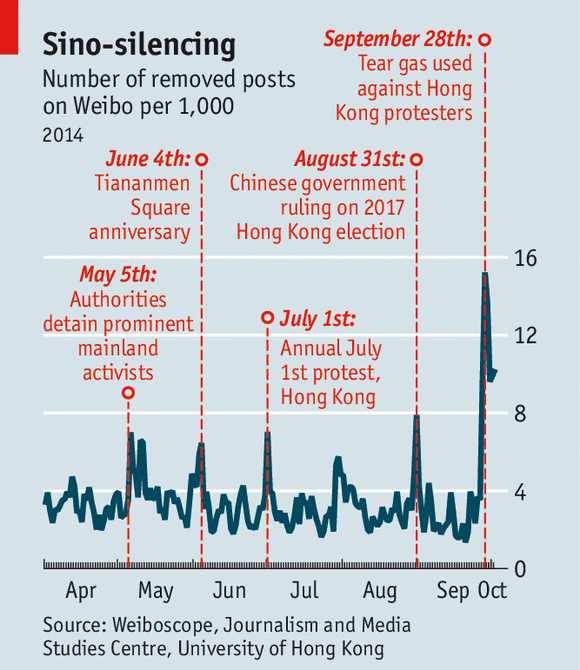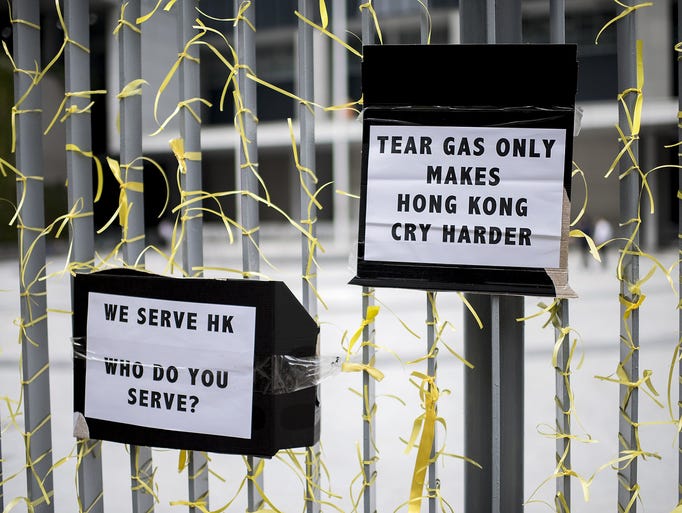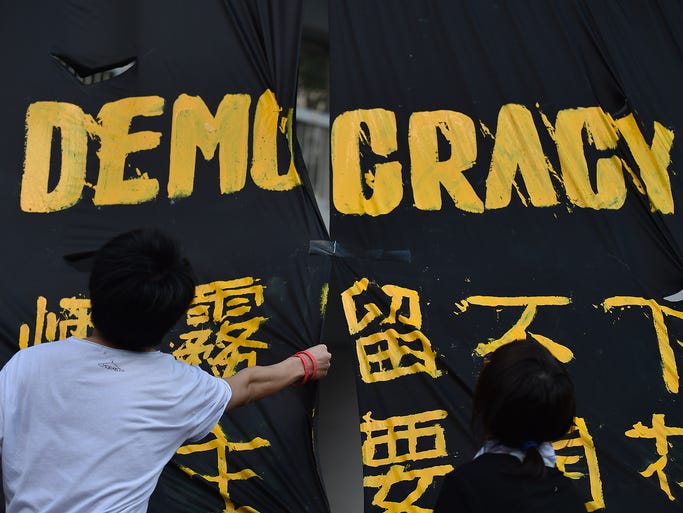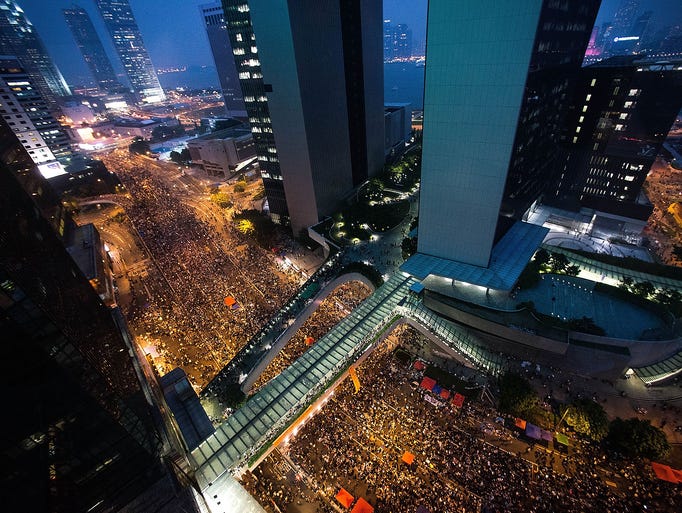By Hojin Choi
Impunity Watch Reporter, Asia
HONG KONG, China – “The Umbrella Revolution” has not ended. The number of pro-democracy protesters in Hong Kong, which once dropped down to few hundreds, is re-growing as the meeting between the government and the protest leaders has been cancelled. Reportedly, the number is now estimated at tens of thousands, and tension is elevating with worry that violent clashes will soon ensue.
The Hong Kong Chief Secretary announced on Saturday that the government cancelled the meeting scheduled for Sunday. He said the government would not have any conversation unless the students accept the legal framework of the 2017 election announced by Beijing. There seems to be no way to reach an agreement between the two groups, the government and the student-led protesters, because Beijing’s decision on the 2017 election was the main trigger of the mass protest. The student leaders made it clear that they cannot disperse unless the Hong Kong government at least agrees to represent their views to Beijing.

Hong Kong’s Chief Executive Leung Chun-ying, who has been pressured by the protesters to resign, said the protesters are making “impossible” demands. This is because, according to Leung, there is “almost zero chance” that Beijing will revoke its earlier decision about the 2017 election. A Chinese state-run newspaper editorial described the protesters demand as “arrogant and ignorant.”
Beijing wants to nominate pro-Beijing candidates chosen by the Communist Party, but the Hong Kong people want an open and democratic nomination by the public. Leung also added that the police might have to use the least level of force since the protests have “spun out of control.” The current Chief Executive of Hong Kong, Leung, was elected by a small number of voters, about 1,200 who were mostly pro-Beijing.
The current situation in Hong Kong is becoming acute. Once, the protest seemed to be over when the protesters let government officials return back to their work places. This was to partially accept the government’s request. A few hundred students remained to continue the protest while police forces kept a distance not to provoke them. However, after the meeting was canceled, the number of protesters rose back to tens of thousands. According to Bloomberg and CNN, the police moved barricades out of the street. This was understood to be a gesture signaling to protesters that the police would be ready to take any immediate action as needed.

Conflicts between pro-democracy and pro-Beijing protesters have been alleviated to a degree. Accordingly, the pro-Beijing group gathered at several places opposite the “Occupy Central” movement. CNN reported on Monday that police had to stand between the two groups as they clashed when the pro-Beijing group attempted to remove barricades reinstated by the pro-democratic protesters. The pro-Beijing groups gave a deadline to clear the streets, the end of Tuesday, to both the students and the police, or they will clear the area by themselves.
For more information please see:
CNN – Scuffles as protest opponents try to tear down Hong Kong barricades – 13 October 2014
The Washington Post – Hong Kong chief says protesters are making ‘impossible’ demands – 12 October 2014
Bloomberg – Hong Kong Police Remove Some Barricades to Shrink Protest Site – 12 October 2014
The New York Times – Police Move on Barricades; Hong Kong Leader Rejects Protesters’ Appeal – 12 October 2014

